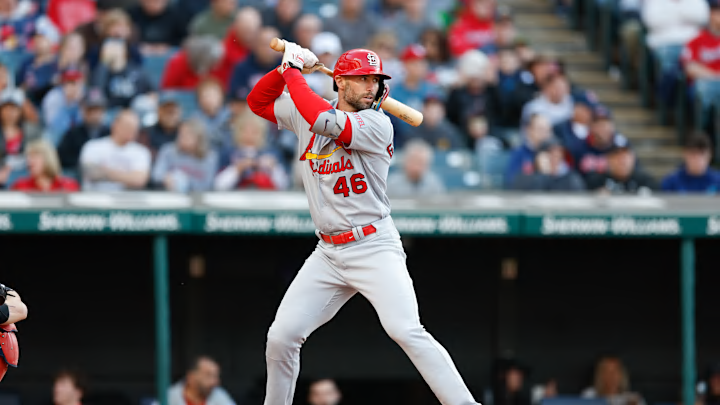Reason #3 - If the Cardinals want to contend in 2024, there is no scenario where they are better without Paul Goldschmidt
Goldschmidt is set to make $26 million dollars next year in the final year of his contract. That's tied for 26th in baseball with Dansby Swanson, Marcu Semien, and Christian Yelich. And that doesn't even include the contracts that guys like Shohei Ohtani, Julio Urias, Aaron Nola, and Matt Chapman, who are free agents this coming winter.
You're not finding a player as good as Goldschmidt making less money than that. He's not just critical talent that the Cardinals need, but he's also one of the best bargains in baseball too when it comes to players that are past arbitration.
On top of that, the Cardinals have around $61 million coming off the books this offseason, assuming they allow Jack Flaherty, Jordan Montgomery, Jordan Hicks, Chris Stratton, Drew VerHagen, and Paul DeJong to either test free agency or be traded between now and then. Even if the Cardinals bring back a few of those names, they'll still have enough budget to make a few signifcant upgrades to the roster in free agency alone.
The Cardinals also have more money than that to spend. Their payroll ranks 16th this year is $168 million, which is $17 million below the league average. We all know the Cardinals have higher revenue streams than that, so they should be realistically looking at $78-$90 million in payroll to spend this offseason. Now will they actually go that high? We'll see. But if they are serious about getting this club back on track, they have plenty of dollars to do so.
Not to mention the amount of prospect capital they can dip into in order to upgrade this rother further. That prospect captial could get even stronger if they end up dealing some of their other pieces at this deadline (big if, as it's too early to label them as sellers). They don't need to trade Goldschmidt to retool.
Beyond 2024, the Cardinals also should be very wary of trading away their star first baseman.
